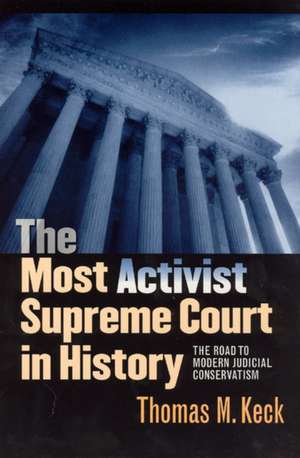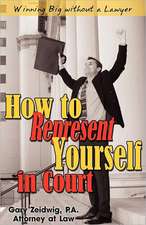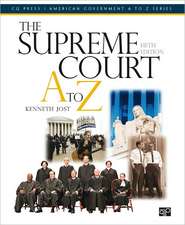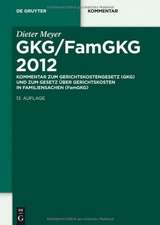The Most Activist Supreme Court in History: The Road to Modern Judicial Conservatism
Autor Thomas M. Kecken Limba Engleză Paperback – 8 oct 2004
When conservatives took control of the federal judiciary in the 1980s, it was widely assumed that they would reverse the landmark rights-protecting precedents set by the Warren Court and replace them with a broad commitment to judicial restraint. Instead, the Supreme Court under Chief Justice William Rehnquist has reaffirmed most of those liberal decisions while creating its own brand of conservative judicial activism.
Ranging from 1937 to the present, The Most Activist Supreme Court in History traces the legal and political forces that have shaped the modern Court. Thomas M. Keck argues that the tensions within modern conservatism have produced a court that exercises its own power quite actively, on behalf of both liberal and conservative ends. Despite the long-standing conservative commitment to restraint, the justices of the Rehnquist Court have stepped in to settle divisive political conflicts over abortion, affirmative action, gay rights, presidential elections, and much more. Keck focuses in particular on the role of Justices O'Connor and Kennedy, whose deciding votes have shaped this uncharacteristically activist Court.
Ranging from 1937 to the present, The Most Activist Supreme Court in History traces the legal and political forces that have shaped the modern Court. Thomas M. Keck argues that the tensions within modern conservatism have produced a court that exercises its own power quite actively, on behalf of both liberal and conservative ends. Despite the long-standing conservative commitment to restraint, the justices of the Rehnquist Court have stepped in to settle divisive political conflicts over abortion, affirmative action, gay rights, presidential elections, and much more. Keck focuses in particular on the role of Justices O'Connor and Kennedy, whose deciding votes have shaped this uncharacteristically activist Court.
Preț: 272.65 lei
Nou
Puncte Express: 409
Preț estimativ în valută:
52.17€ • 56.90$ • 43.99£
52.17€ • 56.90$ • 43.99£
Carte tipărită la comandă
Livrare economică 24 aprilie-08 mai
Preluare comenzi: 021 569.72.76
Specificații
ISBN-13: 9780226428857
ISBN-10: 0226428850
Pagini: 370
Ilustrații: 11 tables
Dimensiuni: 152 x 229 x 23 mm
Greutate: 0.51 kg
Ediția:1
Editura: University of Chicago Press
Colecția University of Chicago Press
ISBN-10: 0226428850
Pagini: 370
Ilustrații: 11 tables
Dimensiuni: 152 x 229 x 23 mm
Greutate: 0.51 kg
Ediția:1
Editura: University of Chicago Press
Colecția University of Chicago Press
Notă biografică
Thomas M. Keck is assistant professor of political science in the Maxwell School of Citizenship and Public Affairs at Syracuse University.
Cuprins
List of Tables
Preface
Introduction: The Supreme Court and Modern Judicial Conservatism
Part I. The Roots of Modern Judicial Conservatism, 1937-1969
1. The New Deal Revolution and the Reconstruction of Constitutional Law, 1937-1949
2. Frankfurter's Failure: The Rise and Decline of Judicial Self-Restraint, 1949-1962
3. The Warren Court and Its Critics, 1962-1969
Part II: The Court and the Conservative Turn in American Politics, 1969-1994
4. The Nixon Court and the Conservative Turn, 1969-1980
5. The Reagan Court and the Conservative Ascendance, 1980-1994
Part III: The Rehnquist Court and the Splintering of Judicial Conservatism, 1994-2003
6. Activism and Restraint on the Rehnquist Court
7. Law and Politics on the Rehnquist Court
Conclusion: Modern Conservatism and Judicial Power
Notes
Cases Cited
References
Index
Preface
Introduction: The Supreme Court and Modern Judicial Conservatism
Part I. The Roots of Modern Judicial Conservatism, 1937-1969
1. The New Deal Revolution and the Reconstruction of Constitutional Law, 1937-1949
2. Frankfurter's Failure: The Rise and Decline of Judicial Self-Restraint, 1949-1962
3. The Warren Court and Its Critics, 1962-1969
Part II: The Court and the Conservative Turn in American Politics, 1969-1994
4. The Nixon Court and the Conservative Turn, 1969-1980
5. The Reagan Court and the Conservative Ascendance, 1980-1994
Part III: The Rehnquist Court and the Splintering of Judicial Conservatism, 1994-2003
6. Activism and Restraint on the Rehnquist Court
7. Law and Politics on the Rehnquist Court
Conclusion: Modern Conservatism and Judicial Power
Notes
Cases Cited
References
Index
Recenzii
"Provocative."
"A welcome and extremely timely book. . . . Because Professor Keck writes from a political science perspective, his book provides a broader dimension than others which have analyzed the Rehnquist Court in largely legalistic terms. Thus, he shows us how decisions of the Supreme Court are not easily separated from the broader trends of political and social change. . . . If one is looking to understand the relationship between constitutional decision-making and the political and social forces which may influence that process, especially in the immediate aftermath of the 2004 presidential election and with the looming prospect of vacancies on the Court, Professor Keck's book more than amply fills the bill."
"[Keck] places the decisions of the Supreme Court in broad historical perspective and shows how the recent conservative activism of the Rehnquist Court fits within an unbroken activist tradition. . . . If you read just one book on the history of the modern Supreme Court, this should probably be the one."
Choice Outstanding Academic Title, 2006
"Keck makes a compelling case for the Rehnquist's Court's very high level of judicial activism. I agree that for too long judicial activism has been equated with liberal judicial decisions. His book makes a clear statement that the same Court may issue both liberal activist decisions and conservative activist decisions. . . . I would recommend [the book] for general courses on the Supreme Court, the judicial system, or American politics."
"Keck devastates claims that contemporary conservatives on the federal bench have no judicial agenda other than to return control over basic polity questions to elected officials."
“<I>The Most Activist Supreme Court in History<I> is far more detailed and theoretically rich than existing commentary. Keck has written what I believe will be recognized as the best place to begin a realistic debate on the merits of Rehnquist Court jurisprudence.”<\#209>Mark Graber, author of <I>Transforming Free Speech: The Ambiguous Legacy of Civil Libertarianism
“Superb. A thoughtful, comprehensive, and balanced account of the rise of modern conservative activism in the United States Supreme Court. Keck’s <I>The Most Activist Supreme Court in History<I> is both an indispensable history of post–New Deal constitutional theory and an impressive ‘new institutionalist’ analysis of recent constitutional change. It should be essential reading for anyone interested in American constitutionalism or Supreme Court politics.”<\#209>Howard Gillman, author of <I>The Votes That Counted












